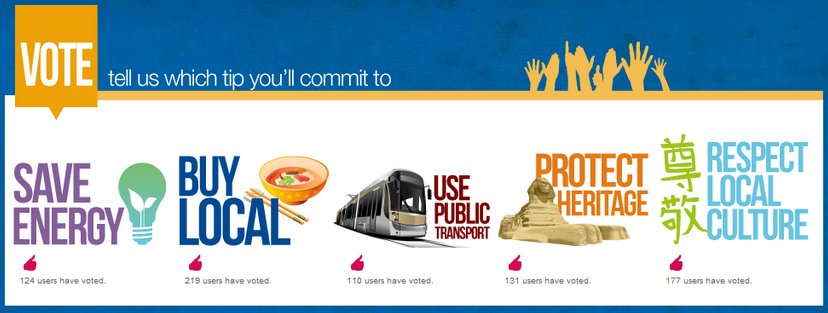Purchasing for your Establishment
For example, an area of pristine rainforest the size of two soccer fields (Greenpeace, 2009) is destroyed in every minute to clear space for growing palm oil for thousands of products and soy to feed cattle for our meat and dairy products. The ocean has become a soup of plastic (AFP, 201 2) which is killing off marine life and birds.
As South Africans, imagine the impact of 8,000,000 tourists visiting us every year. Imagine what a golden opportunity our tourism industry has to make a paradigm shift towards reducing the negative impact, simply through our educated, responsible purchasing decisions.
As discussed in the introductory chapters of this book, South Africa is a leader in conservation and eco-tourism initiatives. The purpose of this chapter is to provide guidelines which will assist establishment owners and/or tourism businesses to begin initiating greener and more sustainable purchases for their day-to-day operations; the goods and services required.
There is a growing trend amongst well informed tourists to request greener products and services from the places they patronise and this trend is driving hospitality managers to demand greener products within their own supply chains. The companies that have already started making changes will gain competitive advantage. Here are some key principles:
- When a tourism business tenders for goods and services or purchases goods and services, requirements and policies need to change radically to include green specifications; a sound understanding of 1) why and what must change, 2) how to change and 3) where to find solutions.
- Take ownership. Responsible tourism by definition demands that each person or business in the tourism supply chain needs to take responsibility for their actions, without being prompted by Government regulation and legislation.
What is responsible or green procurement? Responsible, green procurement means selecting products and services that have the lowest negative impact on the environment as well as the highest positive impact on communities and people.
Challenges To Green Procurement There are unfortunate misconceptions about the price of eco products (however, often there is no real difference), corporate resistance (watching the current bottom line instead of considering a long-term analysis), limited availability, misinformation, conflicting research, controversy and constantly evolving definitions of green criteria. And, unfortunately, at the moment we have little, if any, comprehensive eco labelling in South Africa. There are hundreds of eco labels overseas (all representing different aspects of "green").
Stay abreast of the latest research and opinions on
- deforestation
- toxic chemicals
- pollution during manufacture, transport, use or disposal of a product
- depletion of resources both marine and on land
- serious plastic pollution of the oceans
- slave labour
- factory farming
Different experts have differing opinions and different countries have different legislation. Keep an eye on which products or ingredients are being banned overseas and do your own research.
Green washing
Green-washing is rife in South Africa. Green- washing refers to organisations providing misleading information about the "greenness" of a product whether it is deliberate or unintentional, due to lack of knowledge or ambiguous research. Examples include: hidden trade-offs, no proof for claims, vagueness, and irrelevance, full-on fibbing, the lesser of two evils, or false labelling.
There are three reasons for Green washing:
- Firstly the buyer is uninformed and easily mislead by clever, dishonest marketing
- Secondly, too often the manufacturers, themselves, are unaware of the established definitions of green or eco-friendly products and processes.
- In many cases actual research to support green credentials is lacking
Please note: Whilst Green washing is an issue worldwide, consumers and businesses should continue to improve their green behaviours, regardless. Sometimes buying a product with a few green credentials is a better option than buying from producers who have made no attempt to reduce their products environmental and social impacts.
Where to Start?
Need Vs Want: First and foremost, buy less. Ask your team, "is it a "must have" or a "nice to have" purchase? Would the purchase enhance the tourists' experiences in a positive way and endorse your greening initiatives, or would it affect their decision to choose to support your business?
Your Green Team: A key priority in is to identify the green champion in your organisation or your town. The person who is passionate about going green and who will motivate other stakeholders, whether they are staff or other tourism organisations. The champion is someone who can work with local associations to get more people in your community interested and committed. Then implement staff training and awareness.
To achieve commitment, staff or community members should be involved in all aspects of learning, decision making, and setting of standards. Everyone needs to understand why going green is necessary, what to do and how to do it. Very often, if people understand how making changes will impact their own lives, they will be more committed to work together to bring about change.
Carbon Audit: Simplistically, carbon footprint is a measure of the amount of carbon and other greenhouse gasses that are put into the atmosphere as a result of your day-to-day activities. Carbon footprint calculations include activities such as energy consumption, travelling and waste generated. Measuring your business's carbon footprint is voluntary, but it is often a good place to start because 1) reduction of your carbon footprint is easily measurable once you have a baseline and 2) it presents excellent cost saving benefits which will encourage further good behaviour. Companies like the Heritage Environmental Management Company of SA and Green Leaf Environmental Standard will assess your energy consumption, travel behaviours and waste management, benchmark these, then help you manage these more efficiently.
Green Management, Operations and Procurement: Of great importance, and sadly neglected, is the greening of everything else. That is, everything single thing that gets bought, used or consumed in your establishment every day. A good place to start here is to make a list of all the products and services that you buy on a daily, weekly, monthly and occasional basis e.g. cleaning products, stationery, staff uniforms, bedding, guest amenities, food, gardening aids. Then work through the list systematically and next time you shop for that specific product, seek out a greener alternative.
If you are unsure, find organisations that you can trust, such as www.Greenstuff.co.za (a free online directory) that has endeavoured to select "greener" or the "greenest" versions of all products used in hospitality and will run workshops to explain the rationales and criteria applied to green credentials.
Each product we purchase should be selected based on its overall green attributes, its LCA (Lifecycle Analysis). That is, evaluating the environmental and social consequences of a product through all the different stages of its life, also called "cradle to grave", or better still, "cradle to cradle". Consideration of where and how raw materials are sourced, the manufacturing process, handling transport, safety, and finally, the disposal of the product need to be taken into account. Learn the meaning of, and research the latest thinking on biodiversity, deforestation, organic food, toxins, and pollutants.
Buy Local: Buy locally because that will enhance the economic and social health of a region, promote small economies instead of corporate institutions, and negate large carbon footprints for transport.
- Find local manufacturers, social upliftment projects, arts and crafts
- Identify local SMMEs (small, medium and micro enterprises)
- Look for other regional development initiatives and involve everyone
- Mentor local suppliers to become part of your regular supply chain (organisations such as the tourism enterprise partnership and the sustainable tourism partnership programme are good sources to assist with local economic development)
- Support sustainable food production, processing, distribution, and consumption
A major shift in buying habits requires resolve, education and considerably more effort. While larger businesses have their own sourcing departments that can design policies relating to greener procurement, smaller businesses often lack the knowhow or resources to make greener decisions. There are, however, many organisations, of which www.Greenstuff.co.za, is an example, where information about various products and services that have been researched for their green credentials, is available. Find a resource that works with you. On the other hand, it is also critical that you find suppliers in your area that can provide you with goods produced by local community upliftment projects. Items can include, for example, organic vegetables, locally produced jams, local arts and crafts to furnish your establishment, uniforms, bathrobes, slippers and many other products. A survey done by the United Nations World Tourism Organisation (UNWTO, 2012).

Figure 1: - UNWTO survey on buying local
Supply Chain Monitoring: Manufacturers of products should be able to furnish you with information on the level of green compliance at each stage of their supply chain and they should continue to monitor these for as long as their companies remain preferred suppliers. For example, for new developments or during refurbishments, any wood used in furnishing should have an internationally recognized sustainability label, like FSC (Forest Stewardship Certification). Your supplier should be able to trace the journey of that piece of furniture right back to the forest where the tree was cut down. And, because of rampant land-grabbing and fraud, he will need to continue to demand current certification.
Motivate your suppliers: Help the manufacturers you are targeting by recommending that they get advice from qualified advisors on how to make their manufacturing processes and/or products greener. The management of energy, water and waste at factory level should be addressed with the help of services like Greenstuff or the NCPC (National Cleaner Production Centre).
Then, of course of prime importance, these advisors will help manufacturers develop greener components and ingredients used in the end products.
There are many manufacturers that have acceptable green credentials and by switching to those, you will encourage their competitors to adopt more eco- friendly practices in order that they may stay abreast, or ahead, of market demand.
It is imperative that your suppliers understand your rationales for implementing greener procurement practices and it is suggested that suppliers be included when setting our company's green policies. Inclusivity of your different departments, suppliers and other associates will help to ensure continued commitment and mutual motivation.
Change Habits And Mindsets - Cost versus Price: Greening hospitality in South Africa is not about cost. It is about the price our children will pay for our apathy. It is not about being better than your competitor. It is about everyone collaborating to clean up our industry. Share information. Use free online directories and ask for advice from people like Lorraine Jenks, the author of this document. And, if you find a product worthy of consideration, share the discovery with your colleagues and let Greenstuff know so that they can add it to their website.
Conclusion
Above all, remember this is Africa. Bend the rules. Find new ways. We do not need to copy the European, American or Australian models.
Unlike other parts of the world, in South Africa our most critical sustainability criteria are:
- water security
- job creation
- food security
- and then the rest
Be the Green Champion. Don't wait for perfection. Start somewhere; anywhere. It's actually easier than you think.
"If you think you're too small to make a difference, try going to bed with a mosquito in the room." - African proverb.


